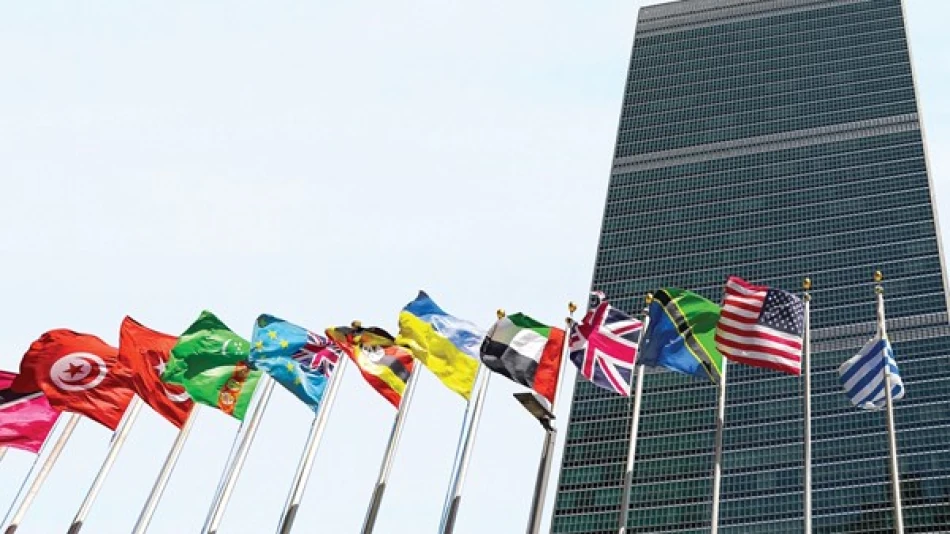
UAE Celebrates United Nations Day, Joins Global Community in Commemorating International Cooperation
The UAE joins the world in celebrating UN Day on October 24, marking 80 years since the UN Charter came into effect in 1945. But this year's celebration carries extra weight as global divisions deepen and challenges become more complex than ever before.
The UAE is organizing meetings, discussions, and exhibitions to highlight UN achievements and goals. These events come as the organization prepares to mark its 80th anniversary in 2025 - a milestone that puts its role in promoting peace, human rights, and social progress under fresh scrutiny.
"We the peoples" - the opening words of the UN Charter - still matter today, says Bérengère Boell, the UN Resident Coordinator in the UAE. "The UN wasn't founded just as an institution for states, but as a covenant for humanity and a call for cooperation in service of peace, dignity, and shared progress."
But here's the challenge: conflicts are displacing millions of families, climate change is accelerating with extreme weather and food insecurity, and technology - while full of opportunities - is also being used to spread misinformation and erode trust.
The UAE has positioned itself as a key partner in addressing these issues. Through Dubai's humanitarian hub, UN agencies like the World Health Organization, UNHCR, UNICEF, and the World Food Programme coordinate emergency responses to crises worldwide. In just one year, UN partners moved thousands of tons of relief supplies through Dubai to communities affected by earthquakes, floods, epidemics, and conflicts.
The country is also becoming a pioneer in using innovation for sustainable development. From artificial intelligence to space exploration, the UAE has channeled its investments in advanced technologies to support human progress and sustainable development foundations.
Looking ahead, the UAE will co-host the UN Water Conference and the UN Crime Prevention and Criminal Justice Congress in 2026. These events will bring together governments, experts, and communities to strengthen international cooperation on water security and rule of law.
The UAE's climate leadership became clear during COP28 in Dubai in 2023. Under UAE leadership, countries agreed to a historic outcome calling for transitioning away from fossil fuels and pushing for renewable energy tripling and energy efficiency doubling by 2030. "This was an embodiment of effective multilateralism, showing that global consensus is still possible when there's leadership, inclusion, and political will," Boell notes.
The country has also made significant strides in women's empowerment. Through cooperation between UN Women and the UAE Gender Balance Council, the nation implements initiatives that enhance women's participation in decision-making and economic life, both domestically and globally.
These efforts align with the UAE's national strategy (UAE Vision 2031), which aims to build a more sustainable, competitive, and future-ready nation. The vision's pillars connect closely with the UN's Sustainable Development Goals.
But there's a reality check: we're past the midpoint toward 2030, and the world is still far from achieving half of what it committed to in development goals. Today, only about 15% of these targets are on track - a clear reminder that ambition alone isn't enough.
As Boell puts it: "Progress isn't achieved through isolation, but through partnership, openness, and a promising vision for the future." The UAE's approach, rooted in the founding father Sheikh Zayed's belief that "cooperation and solidarity are the foundation of strength and progress," continues to shape its global engagement today.
Most Viewed News

 Layla Al Mansoori
Layla Al Mansoori






